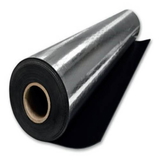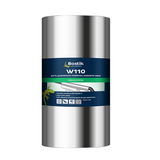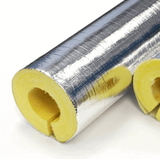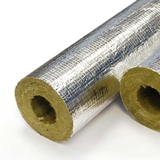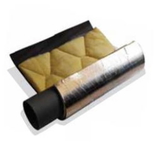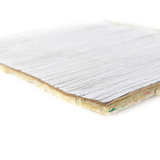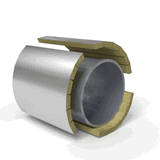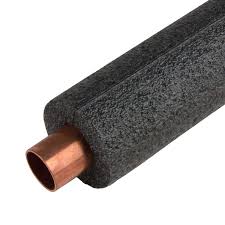- Blogs
- Soil Pipe Insulation: A Step-by-Step Guide
Soil Pipe Insulation: A Step-by-Step Guide
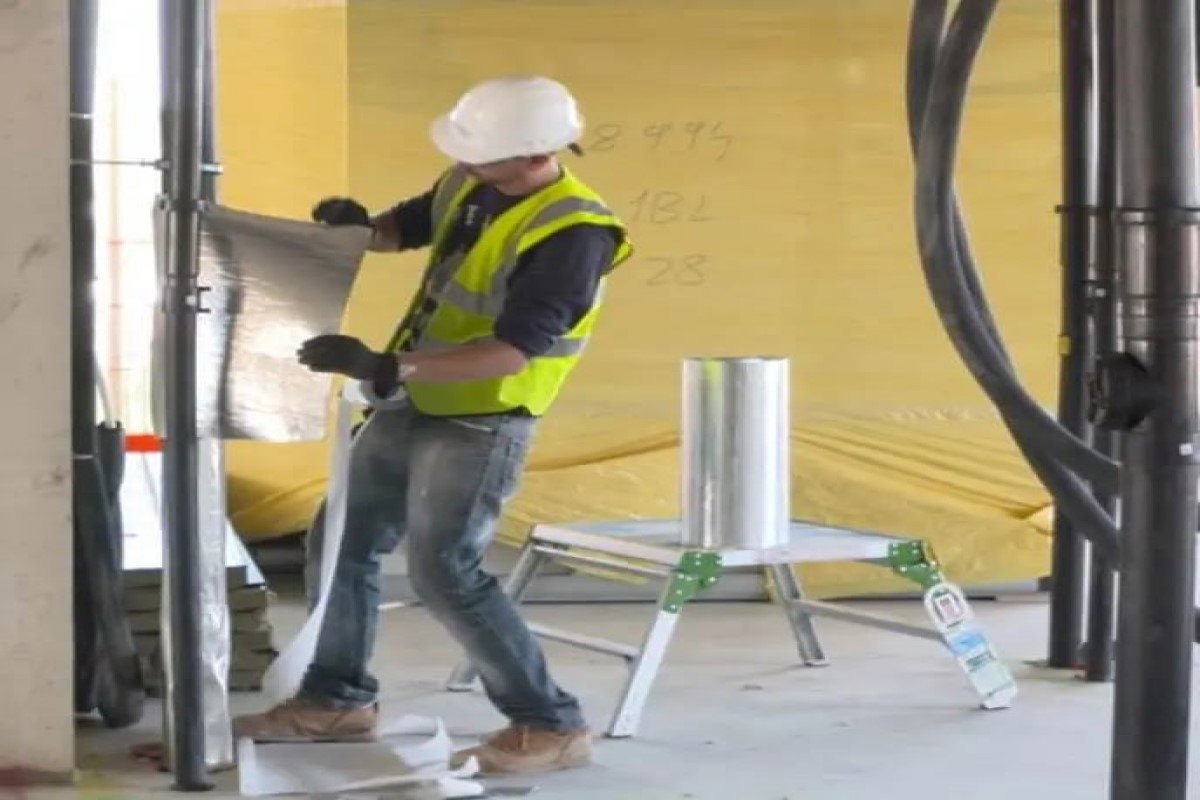
When your house is well-built, you can guarantee that it will last for ages. However, there will always be room for improvements to your floor, walls, ceilings, and pipes.
Speaking of pipes, if they are left uninsulated, it will lead to freezing in winter, causing consequential damage such as leaks and floods.
In general, pipes that lack insulation can be vulnerable to heat loss, resulting in increased energy usage that could cause quite a problem in your financial and environmental costs and this is especially true for soil pipes.
What Are Soil Pipes?
Soil pipes are made to carry and move soiled water or blackwater away from your house, which can come from your toilet flush, urinal or bidet.
Soil pipes are wider than waste pipes. They should be produced based on the relevant British standard.
They are required to be vented, basically at the top of the building, for the safe clearance of gases and to lessen odours- and to make sure that the pipes are creating a safe zone.
Gases that emerge from soil pipes can be detrimental to one's health, so as much as possible, it is better to ventilate the pipes.
These vent pipes and exit channels are essential in any soil waste system.
As it will not only provide ventilation to the systems but control the pressure to ensure that the positive pressure does not force the wastewater back to the drain and toilet of the house.
Pipe insulation
What Are the Differences Between Soil and Waste Pipe Systems?![soil pipe]()
Both soil and waste pipes are required in every establishment that carries and transports wastewater.
The key difference is that soil pipes move soiled water or blackwater from the toilet, urinals or bidets.
On the other hand, waste pipes carry wastewater or greywater from the sink, bathroom, and washing machine, which will make its way to the main sewer.
Furthermore, in diameter, soil pipes are larger than waste pipes, as they carry both solid and liquid waste.
What Causes Them to Be Noisy?
Soil pipes are found behind the walls and ceilings, but they are not soundproofed when the house is built.
So, the breakout noise and vibrations produced inside the pipes can enter your living room wall.
Breakout noise is the sound from the walls of the building, which is caused by the water movements around the piping system behind the ceilings and walls.
Here are some of the main causes why your soil pipes make annoying noise:
Loose Piping
The pipework allows water running into your home. If something is transported through the soil pipes, this will tend to result in pressure and friction.
So, if you notice any clunking or vibrations from the pipes, they could become loose over time and need to be fixed.
If you can retrieve it, try to restructure it for a proper fitting by securing the bolt and screws or replacing exhausted fixtures.
What if you cannot access the pipework or the new fixtures are unable to provide solutions?
The soil pipes probably need re-routing, so you better find a professional to help you deal with the issue.
High Liquid Pressure
The high water pressure can also cause noise in your pipes, which can have serious implications if inappropriately managed.
Fortunately, it only needs easy solutions, as noise will happen if the pressure is too high because it is being pushed through pipework rapidly and is crashing around.
Note that the water pressure needs to be between 1 to 1.5 bar. If it exceeds that, the pipes and appliances will tend to get overloaded and impaired.
You can survey your boiler and find out what the pressure currently is. If it is too high, you can alter the regulator but look over your boiler manual.
If you don't have a metre, then call a plumber and have the pipes checked.
The Thermal Effect
There is a pipe with materials like copper, which is vulnerable to heat, and as the heat of the water grows, the pipes will be hotter.
One of the main culprits of noise from the pipework is the insufficiency of allowance for thermal movement and its contact with firm brackets.
If they are so close to each other, there's a tendency that they will rub against themselves, thus producing a rattling noise.
The pipes that carry water by the soil slack expand and contract.
If combined with water colliding onto the pipe walls, this can generate a structure-borne noise passed on from impact zones between pipes and structures.
You can get rid of the noise from the heating and bumping pipes by decreasing the temperature to meet its stable state.
Installing soil pipe insulation and soundproofing is not that hard, as it only needs a small primary outlay, but it is surely a good investment for your home!
Here's a step-by-step guide for your pipe insulation!
How to Soundproof Soil Pipes (4 Steps)![soil pipe insulation]()
The noise coming from your pipework may be too annoying, it could be that the pressure is too high, or there's loose pipework causing the vibration.
Whatever it is, you should definitely soundproof it as soon as possible to prevent further damage.
When you soundproof soil pipes, identify the source of the issue and choose the right products for the construction.
1: Prepare
Before anything else, ensure you are all set for the construction project, including any products and tools you will use.
You should clean the soil pipes with no dust and debris left.
After you apply your cleaning product, wipe the entire length of the pipe and wait until it has completely dried.
2: Measure
Estimate a practical section of the pipe and use this to measure out and match the length of the pipe insulation.
Double-check the measurement before you cut it. You can use the pipes' joints, elbows, and other angles in your measurement.
Pipe lagging should eventually fit their shape.
3: Application!
There is more than one way to apply insulation to your pipes, including the items required. Find out which may be the most convenient way for you!
1: Foam Pipe Insulation
Foam pipe insulation is used as a soundproof solution. Each length of the foam pipe lagging has holes that will allow it to be pressed into place around the pipe.
Another layer of foam pipe insulation is added to block off the noise. That extra layer of foam will absorb the vibrations and prevent any sound from escaping from the walls.
You must ensure that all sections are enclosed, or it will defeat its performance.
2: Pipe Wrap
Alternatively, you can soundproof the pipes by wrapping them using pipe wraps to the external portion of the pipes.
Usually, these are self-adhesive rolls of 5.5m x 1.2 m.
If these are cut lengthways in 400 mm strips, you will form three strips at 5.5 mm, which can shelter a 100mm diameter pipe 16m long.
This should add a high level of mass to lessen the extent of airborne sound channels and will also aid in absorbing the resonance of the pipe.
Adding another layer of the material can intensify its soundproof effects, especially if applied at the right angle bends.
To fully seal the area, you need to make a timber frame around the pipework. The unfilled space is infused with acoustic mineral wool to lessen the extent of echoing.
Complete the timber box area using a double plasterboard sheet on its frame and seal it.
4: Double Check
Using the foam pipe insulation, you could use premium duct tape to seal the open ends.
Repeat the process from the first step for each pipe area that should be insulated. Also, check with some screws that may have been left unsecured.
Why is it important to inspect the screws? There may be loopholes in wrapping the soil pipes.
![foam pipe insulation]() Frequently Asked Questions
Frequently Asked Questions
Here is some additional information to learn more about soundproofing:
What Are the Different Types of Soil Pipe Soundproofing?
It is better to soundproof the soil pipes during the construction phase of the house to avoid additional costs and labour for renovation.
Sometimes, no acoustic insulation panels can be set down on the wall, so you will need to remove the dry wall to solve the problem.
But you can still eliminate the noise. If not, at best, reduce it. Here are the two essential types of soil pipe soundproofing:
Noise Reduction
To reduce the noise and make it less distracting, you can buy an efficient sound-absorbing material such as self-adhesive pipe wrap rolls.
They are shock absorbent and can file into any holes and avoid unnecessary motion of the pipes.
Noise Elimination
You can block out the noise on the wall completely from the internal pipes.
One of the solutions is to use mass-loaded vinyl and insulators.
They are a mineral-loaded heavy layer nominally specifically made to block unwanted noise.
They are dense enough and serve as a thin dae-coupling noise barrier in walls, ceilings, and timber floors.
That's just one line of action. If you want the best results, you can use it as one coat between two sheets of plasterboard.
Should I Seek Help From a Professional When Soundproofing Soil Pipes?
You can do this project if the concern is tightening the pipes or regulating the pressure.
However, if you don't have the skills and the situations that need expert attention, such as re-routing the pipe or bringing down the dry walls for soundproofing, don't take a chance.
You can find an expert to inspect your wall and implement soundproofing on your soil pipes.
Conclusion:
Over time, when the issues in your pipework are left unchecked, it can also lead to serious consequences like leaks and flooding.
So better not to get your hope high and think it will eventually leave one day.
Think again! That breakout noise behind the wall can signal that you need to soundproof your pipes.
For Top quality foam pipe insulation at a highly competitive price visit Buy Insulation Online. We stock all types of pipe insulation, valve covers, duct lagging and more at the lowest possible prices

Samuel Hitch
Managing Director
Buy Insulation Online.
Leave A Reply
Your feedback is greatly appreciated, please comment on our content below. Your email address will not be published. Required fields are marked *
